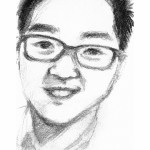A city roars, a nation chants, a world cries out — “Je Suis Charlie.” I am freedom, I am bravery, “I am Charlie” and I will not be silenced. But to be silenced, you first must have the bravery to speak. And that is why instead, I say to myself, “je ne suis pas Charlie” — I am not Charlie.
 Beyond the murk and the controversies and the reactionary sentiments surrounding the tragedy, one particular aspect of the Charlie Hebdo attacks stands out to me: the courage it takes to express one’s views, and the value of such courage.
Beyond the murk and the controversies and the reactionary sentiments surrounding the tragedy, one particular aspect of the Charlie Hebdo attacks stands out to me: the courage it takes to express one’s views, and the value of such courage.
People have labeled the magazine as far from courageous. Some have said that the magazine was disrespectful and offensive. I’m not here to speak on behalf of Charlie Hebdo, but rather, to speak as a staff columnist at the News.
I’ve never meant for any of my pieces to be offensive, or disrespectful. Surprising, I know, but I promise that’s not the case. I’ve only ever hoped that my pieces start a discussion, get people talking about an issue and bring it into the light.
Now, cries of offensiveness often follow from that. Discussion implies that there are two sides to an issue, and as a columnist, I’m supposed to argue for one of those sides. Naturally, the opposing group isn’t exactly thrilled. But that’s the point. It’s to get people energized enough to talk to each other and do something. Columns shouldn’t be merely read. They should catalyze action.
But to write about something worthy of being discussed — worthy of inciting heated debate and an actual response — isn’t easy. Not for me, and if I have the liberty of saying, not for most people, especially at Yale.
I don’t say this because I think that the topics to write about are particularly hard to find, or because it takes some kind of special skill to write such columns. Rather, I say this because I think that I, along with many others, lack the courage to express such views in a public forum.
I’ve talked to many people, strong in convictions and opinions, who didn’t want to publish anything in the YDN because they were afraid of the consequences. They were afraid of the backlash, the cries of offense. They were afraid of being viewed as a caricature of their actually held beliefs or of their critics misrepresenting their words.
But often that fear leads us to only publicly express our most innocuous views. Sometimes we don’t even dare to venture an opinion but choose instead to recite a list of facts or observations. When I’ve been afraid of rocking the boat, I’ve written columns that — if I’m being honest — lack substance.
It might be reasonable to cut Friday language classes, the argument of one of my more tepid columns. But who cares? What discussion is that supposed to promote? What’s the point of that column?
I might as well have written a column titled “Be nice to people.” Well, of course you should be nice to people! That’s not even deserving of the title of an opinion. But sadly, it’s these kinds of things that I’ve often published — quiet, harmless, quasi-opinions that make sure not to ruffle any feathers.
I’m not saying you should go out with the intention of offending people and causing a ruckus. That’s immature and pointless. It’s not brave to hurt other people. What I am saying, however, is that the most valuable discussions will often be the ones that could prove to be upsetting for some people.
But that fact alone should not prevent you from expressing your views in a productive manner. A freedom of speech is also a freedom to be criticized. These two are symbiotic and equally essential. But we should try to be braver in the face of criticism. Otherwise we sit in silent stagnation, going nowhere, doing nothing.
The tragedy in Paris reminded us of the value of courage. Free discussion and rational debate are critical hallmarks of a civilized society. Even the unappealing deserves to be heard, if only so their ideas can be defeated by reason rather than allowed to dwell unchallenged in the hearts of its holders. It reminded me that while I often shirk the controversial, others voice their opinions knowing the possible ramifications could be far worse than anything that can ever be hurled at me.
I am not Charlie. When the stakes are that high, I’m not brave. But everyone is brave enough to speak at the risk of judgment by your peers. At Yale, we prize diversity. Being brave enough to voice our views freely is an essential part of this diversity. We shouldn’t let fear get the best of us. Doing anything less would be a disservice to those who really are courageous.
Leo Kim is a sophomore in Trumbull College. His column runs on alternate Fridays. Contact him at leo.kim@yale.edu.







